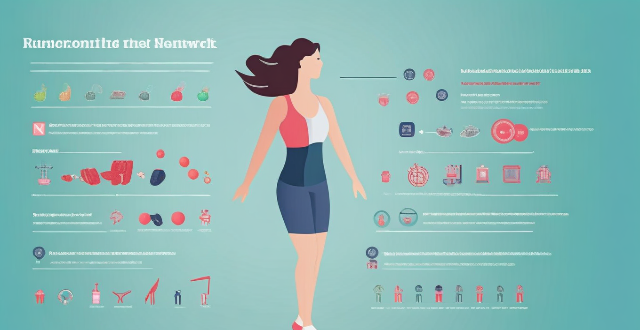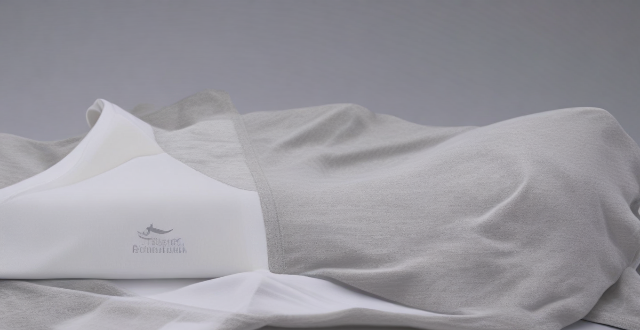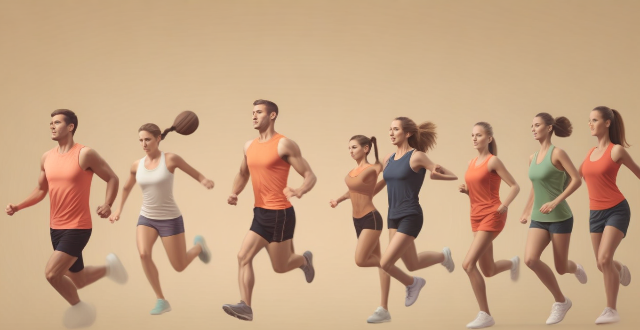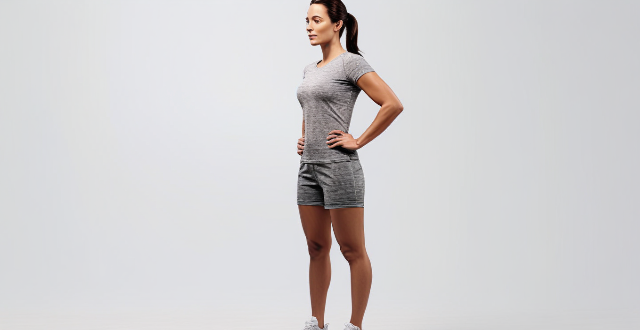Sports Recovery

Can sports supplements help with muscle recovery after workouts ?
Can Sports Supplements Help with Muscle Recovery After Workouts? Physical exercise and workouts are essential for maintaining a healthy lifestyle, but they can also lead to muscle fatigue and soreness. Many athletes and fitness enthusiasts turn to sports supplements to aid in muscle recovery after workouts. But do these supplements really work? Let's explore the topic in detail. What are Sports Supplements? Sports supplements are dietary products designed to enhance athletic performance, improve physical health, and support recovery from exercise. They come in various forms, including powders, pills, and liquids, and can be consumed before, during, or after workouts. Types of Sports Supplements - Protein Powders: Help in muscle repair and growth. - Creatine: Boosts energy production in muscles. - Branched-Chain Amino Acids (BCAAs): Support muscle building and recovery. - Glutamine: Aids in muscle recovery and immune function. - Omega-3 Fatty Acids: Reduce inflammation and promote heart health. - Multivitamins/Minerals: Support overall health and wellness. How Do Sports Supplements Help with Muscle Recovery? - Protein Powders: Consuming protein powders after a workout can help replenish depleted amino acids, leading to faster recovery times. - Creatine: Increases the availability of phosphocreatine, which helps regenerate ATP more quickly during high-intensity exercises, reducing muscle fatigue and aiding in recovery. - BCAAs: Consuming BCAA supplements before or during workouts can reduce muscle damage and speed up recovery processes. - Glutamine: Supports muscle recovery by helping maintain cellular volume and preventing muscle breakdown. It also supports immune function, which is important for overall health and recovery. - Omega-3 Fatty Acids: Have anti-inflammatory properties that can help reduce muscle soreness and stiffness after workouts. They also support heart health, which is crucial for athletes who engage in cardiovascular exercises. - Multivitamins/Minerals: While not directly related to muscle recovery, consuming multivitamins or minerals can support overall health and wellness, which indirectly aids in recovery processes. Are Sports Supplements Safe? While sports supplements can be beneficial for some individuals, it's important to note that they are not regulated by the Food and Drug Administration (FDA). This means that their safety and effectiveness may vary between brands and products. It's always best to consult with a healthcare professional before starting any supplement regimen. Additionally, relying solely on supplements without proper nutrition and rest can be counterproductive. A balanced diet, adequate sleep, and proper hydration are still key components of effective muscle recovery.

What role does nutrition play in sports injury recovery ?
Nutrition plays a crucial role in sports injury recovery by providing the body with essential nutrients for tissue repair and growth. Protein, vitamins, minerals, and fluids are all important for healing, and proper nutrition can help speed up the process. In addition to nutrition, other factors such as rest, stress management, and physical therapy also play a role in sports injury recovery.

How does sports psychology contribute to injury recovery and rehabilitation ?
Sports psychology can contribute to injury recovery and rehabilitation by helping athletes cope with psychological challenges, develop confidence and self-belief, establish good habits and routines, and adjust to life after injury. Incorporating sports psychology into an athlete's rehabilitation program can lead to better results and quicker recovery.

How can I improve my flexibility and range of motion during sports recovery ?
Improving Flexibility and Range of Motion during Sports Recovery: - Incorporate dynamic and static stretching routines before and after physical activities. - Use foam rolling for self-myofascial release to aid recovery and increase range of motion. - Include yoga or Pilates in your routine to improve flexibility and balance through mindful movements and breath control. - Maintain proper nutrition by staying hydrated, consuming adequate protein, and eating anti-inflammatory foods. - Ensure adequate rest through sleep and active rest days. - Practice consistency in these strategies and track progress to monitor improvements over time. - Consult with professionals like physical therapists and sports trainers for personalized guidance and injury prevention.

Can physical therapy help with sports injury recovery ?
Physical therapy is beneficial for sports injury recovery, addressPhysical therapy is beneficial for sports injury recovery, address restoration, injury prevention, and addressing pain management, function restoration, injury prevention, and supporting a safe return to activity. It involves assessment, diagnosis, manual therapy, range of motion exercises, strengthening exercises, stretching, balance training, functional training, gradual increase in activity, and education on injury prevention and home exercise programs.

What is the importance of recovery in sports training ?
Recovery is a crucial aspect of sports training that often gets overlooked. Athletes and coaches need to understand the importance of recovery and make it an integral part of their training programs. Recovery refers to the process of restoring the body's energy reserves and repairing damaged tissues after physical activity. It is essential for athletes because it allows them to prevent overtraining, promote tissue repair and growth, and enhance mental well-being. There are several effective recovery strategies that athletes can incorporate into their training programs, including active recovery, passive recovery, hydration and nutrition, and sleep. By incorporating these strategies into their training programs, athletes can maximize their recovery benefits and improve their performance on the field or court.

What are the best exercises for sports recovery ?
The text discusses the importance of sports recovery and suggests various exercises to aid in this process. The exercises include stretching, foam rolling, light cardiovascular exercise, and yoga. Stretching helps increase blood flow, reduce muscle tension, and improve flexibility. Foam rolling relieves muscle tightness and soreness by applying pressure to specific areas of the body. Light cardiovascular exercise increases blood flow and promotes recovery. Yoga improves flexibility, reduces stress, and promotes relaxation while also improving balance and stability. The author suggests several specific exercises for each category to help athletes recover from their workouts or competitions.

How important is rest and recovery in a sports training plan ?
This article emphasizes the importance of rest and recovery in a sports training plan. It highlights that incorporating rest and recovery into a routine can prevent overtraining, enhance performance, and reduce the risk of injury. The article provides tips on how to incorporate rest and recovery into a training plan, such as scheduling regular rest days, using active recovery techniques, getting enough sleep, and staying hydrated. Overall, the article stresses the significance of giving the body time to heal and repair itself for optimal performance levels.

How do sports nutrition supplements affect muscle recovery after a workout ?
Sports nutrition supplements can significantly support muscle recovery post-workout by providing essential nutrients. Protein supplements like whey and casein replenish amino acids, while carbohydrate supplements such as BCAAs and beta-alanine reduce soreness and fatigue. Other nutrients, including creatine, glutamine, and vitamins/minerals, further enhance recovery. A structured supplementation routine, tailored to individual needs, can optimize muscle recovery and athletic performance.

How important is rest in the recovery process of a sports injury ?
The Importance of Rest in the Recovery Process of a Sports Injury Rest is crucial for healing, preventing further injury, reducing pain, and supporting mental health during recovery. Tips for proper rest include following doctor's orders, creating a comfortable environment, staying hydrated and nourished, getting enough sleep, and staying active (but safely).

Are there any specific stretches or warm-up routines that aid in sports recovery ?
Recovery is an essential aspect of sports and physical activities. Stretching and warm-up routines can aid in reducing the risk of injuries, improving performance, and enhancing overall well-being. Specific stretches such as hamstring, calf, and quadriceps stretches can increase flexibility, reduce muscle tension, and promote blood flow. Warm-up routines like cardiovascular exercises, resistance band exercises, and foam rolling can activate muscles, improve circulation, and reduce tightness. Incorporating these routines into your recovery process can help you achieve better results and prevent injuries.

What is the relationship between sleep and recovery in high-level sports performance ?
Sleep is a vital component of recovery for high-level athletes, playing a significant role in muscle repair, energy restoration, immune function, cognitive function, and emotional well-being. Optimal sleep can lead to improved performance, reduced injury risk, enhanced learning and adaptation, increased motivation and focus, and better weight management. To maximize the benefits of sleep for recovery, athletes should establish good sleep habits such as maintaining a consistent sleep schedule, creating a conducive sleep environment, limiting caffeine and alcohol intake, practicing relaxation techniques, and avoiding naps or keeping them short and early in the day.

How can I stay motivated and positive during the recovery process of a sports injury ?
Staying motivated and positive during the recovery process of a sports injury can be challenging, but it is essential for a successful comeback. Here are some tips on how to maintain your motivation and positivity: - Set realistic goals: Focus on small, achievable goals that you can accomplish daily or weekly, while keeping long-term goals in mind. - Stay positive: Use visualization techniques to imagine yourself successfully returning to your sport and performing at your best. Surround yourself with people who support and encourage you. - Stay active: Incorporate low-impact exercises into your routine, such as swimming or cycling, and attend regular physical therapy sessions to improve your strength and flexibility. - Educate yourself: Learn about your injury and the recovery process, and ask questions to your doctor or physical therapist. - Take care of your mental health: Practice mindfulness and meditation to reduce stress and anxiety, and seek professional help if needed. - Celebrate small victories: Acknowledge and celebrate progress along the way, and reward yourself for achieving short-term goals. By following these tips, you can make the most of your recovery journey and return to your sport stronger than ever.

How can sports medicine improve an athlete's performance ?
Sports medicine can improve an athlete's performance by focusing on injury prevention and management, optimal recovery strategies, mental health support, performance enhancement through strength and conditioning programs, biomechanical analysis, pain management, and medical care and treatment. It involves a holistic approach to addressing an athlete's physical health, mental well-being, nutrition, and recovery processes.

What role does nutrition play in sports research and development ?
Nutrition is crucial for athletes' performance, recovery, and overall health. It impacts energy production, recovery and repair, hydration, and more. Researchers study the effects of ergogenic aids, supplements, and nutritional strategies to optimize sports performance. Athletes need to consume the right nutrients to fuel their bodies for peak performance.

What are the best post-workout recovery techniques
The text discusses the importance of post-workout recovery for achieving optimal physical performance and preventing injuries. The author recommends several techniques including stretching, hydration, protein intake, foam rolling, massage therapy, active recovery, and sleep. Stretching improves flexibility and reduces muscle soreness, while hydration replaces lost fluids during exercise. Protein intake helps repair and rebuild muscles, foam rolling relieves muscle tension, massage therapy reduces inflammation, active recovery promotes circulation, and sleep allows the body to repair and rebuild itself. Incorporating these techniques into a routine can help improve performance and prevent injuries.

Are there any specific stretches or movements that should be avoided during sports injury recovery ?
During sports injury recovery, it is important to avoid certain stretches and movements that could worsen the injury or delay healing. Stretches to avoid include overstretching, ballistic stretching, and passive stretching. Movements to avoid include high-impact activities, weight-bearing exercises, and sports-specific movements. By following these guidelines and working closely with your healthcare provider, you can safely return to your sport and minimize the risk of reinjury.

In what ways can sports psychology aid in injury rehabilitation and recovery ?
Sports psychology aids in injury rehabilitation by managing emotions, developing a positive mindset, promoting healthy habits, and helping athletes return to their previous level of performance.

How can sports research and development improve athletic performance at all levels ?
Sports research and development (R&D) play a crucial role in enhancing athletic performance across various levels, from amateur to professional athletes. By employing scientific methods, technology, and data analysis, sports R&D helps athletes optimize their training, improve technique, prevent injuries, and ultimately achieve better results. Key areas of impact include biomechanics and technique optimization, training methodologies, nutrition and recovery, mental training, and injury prevention and rehabilitation. Implementation strategies involve a collaborative approach, continuous learning, individualization, and embracing technology. Sports R&D offers a multitude of avenues to enhance athletic performance, and the integration of cutting-edge science and technology will continue to drive advancements in sport, pushing the boundaries of human performance further than ever before.

What role does recovery play in a sports health management plan ?
Recovery is a crucial component of sports health management, enhancing performance, preventing injuries, promoting mental health, and maintaining a balanced lifestyle. It involves activities like sleep, nutrition, stress reduction techniques, and time management to ensure athletes can perform at their best while staying healthy and motivated.

How important is rest and sleep in sports recovery ?
Rest and sleep are crucial components of an athlete's recovery regimen, essential for muscle repair, CNS recharge, and mental clarity. Quality and quantity of sleep directly impact athletic performance through deep sleep phases and REM sleep. Practical tips include creating an optimal sleep environment, developing pre-sleep routines, and maintaining proper nutrition and hydration. Prioritizing rest and sleep is key to achieving peak physical condition and driving overall athletic success.

What strategies are most effective for managing injuries and ensuring quick recovery in high-performance athletes ?
High-performance athletes face a significant risk of injuries due to the intense physical demands they place on their bodies. Proper management of these injuries is crucial for a quick and successful recovery. Effective strategies for managing injuries and ensuring quick recovery in high-performance athletes include immediate action through the RICE method and medical assessment, rehabilitation programs involving physical therapy, gradual return to training, and nutritional support, mental health support through counseling services and visualization techniques, and prevention strategies such as proper warm-up and cool-down routines, cross-training, and equipment checks. By following these strategies, athletes can maximize their chances of returning to peak performance levels quickly and safely.

What role does technology play in modern disaster response and recovery ?
Technology plays a vital role in modern disaster response and recovery by enhancing early warning systems, improving communication and coordination, and enabling efficient data collection and analysis.

How do sports supplements work ?
Sports supplements are designed to enhance athletic performance, improve recovery, and support overall health by providing essential nutrients. They work in various ways: 1. **Energy Production**: Carbohydrates replenish glycogen stores, delay fatigue, and maintain performance levels; Creatine increases short-term power and strength. 2. **Muscle Growth and Repair**: Protein supports muscle recovery and building; BCAAs reduce muscle soreness and improve endurance. 3. **Hydration and Electrolyte Balance**: Electrolytes prevent dehydration, cramping, and maintain muscle function. 4. **Joint Health and Recovery**: Glucosamine and Chondroitin may reduce joint pain; Omega-3 fatty acids reduce inflammation. 5. **Performance Enhancement**: Caffeine improves endurance and focus; Beta-alanine delays muscle fatigue. Supplements should complement a balanced diet and their use should be guided by healthcare professionals.

How has wearable technology impacted sports performance ?
Wearable technology has significantly impacted sports performance by improving training efficiency, enhancing recovery time, and increasing motivation and accountability. Devices such as GPS trackers, heart rate monitors, sleep trackers, and muscle recovery monitors provide athletes with real-time data and insights into their performance, allowing them to optimize their training intensity, prevent overexertion, and reduce the risk of injury. Additionally, fitness trackers and virtual coaching apps help athletes set goals, monitor progress, and stay motivated throughout their training journey. As technology continues to advance, we can expect more innovative solutions that will further enhance sports performance.

How long does it take to recover from a sports injury ?
Recovering from a sports injury varies based on the type and severity of the injury, individual factors such as age and overall health, and commitment to rehabilitation. Acute injuries occur suddenly, often due to a specific event or trauma, while overuse injuries develop over time from repetitive stress without adequate rest or recovery. Chronic injuries are ongoing conditions that may have started as acute or overuse injuries but have not healed properly. Recovery timelines vary depending on the injury's severity, with minor sprains and strains taking several days to a few weeks to heal with proper rest and care, moderate injuries requiring several weeks to months for recovery, often involving physical therapy, and severe injuries like major fractures or complete ligament tears taking months to over a year for full recovery, typically requiring surgery and extensive rehabilitation. Key factors affecting recovery include age, overall health, commitment to rehabilitation, rest, and professional care. Tips for supporting recovery include following professional advice, maintaining a healthy lifestyle, staying positive, and gradually returning to activity. Patience, persistence, and a proactive approach to rehabilitation are key to achieving the best possible outcome.

How do professional athletes train and practice ?
Professional athletes engage in comprehensive training and practice routines to excel in their sports. Their regimens include physical conditioning through cardiovascular exercises, strength training, and flexibility practices. They also focus on technical skill development through repetitive drills, scrimmages, video analysis, and virtual reality training. Mental preparation is equally important, involving visualization techniques and sports psychology consultations. Recovery and regeneration strategies encompass proper nutrition, sleep habits, and active recovery methods like light exercise and massage therapy. These components all work together to ensure athletes reach peak performance while minimizing the risk of injury.

What is the significance of compression garments in sports attire ?
Compression garments are tight-fitting clothes designed to provide a snug fit and exert pressure on the body. These garments offer numerous benefits that can enhance performance, recovery, and overall well-being in sports attire. Some of the key benefits include improved blood circulation, enhanced recovery, temperature regulation, support and stability, and psychological advantages. By promoting better blood flow, compression garments help to deliver more oxygen to working muscles, remove metabolic waste, reduce muscle vibration, and minimize inflammation and swelling after exercise. They also regulate temperature in both hot and cold environments, provide joint and muscle support, and boost confidence and mental preparation for athletes. Incorporating compression garments into sports attire can optimize performance and recovery, making them a valuable addition for athletes across various disciplines.

How long does it typically take to fully recover from a sports injury ?
Factors influencing recovery time from a sports injury include the type and severity of the injury, treatment and rehabilitation methods, age and overall health of the athlete, nutrition and lifestyle habits, and mental attitude. Immediate care, physical therapy, and medical interventions can impact healing time. Younger athletes generally heal faster than older ones, while proper nutrition, rest, and avoiding risky activities support the recovery process. A positive mindset and addressing mental health issues can also contribute to quicker healing. The recovery time varies significantly based on these factors, and it is essential to consult with healthcare professionals for an accurate estimate and personalized recovery plan.

Do different genres of music have varying effects on sports performance ?
Music is a powerful tool that can influence our mood, motivation, and overall performance in various activities, including sports. The question arises: do different genres of music have varying effects on sports performance? Let's delve into this topic to find out. ### Motivational Aspect - **Upbeat Music**: Fast-paced music with a high tempo, such as rock or electronic dance music, can increase energy levels and provide motivation during workouts or competitions. - **Relaxing Music**: Slow-tempo music like classical or instrumental tracks may help athletes relax and focus on their technique rather than intensity. ### Physical Response - **Heart Rate**: Upbeat music can increase heart rate, preparing the body for more intense physical activity. - **Muscle Response**: Some studies suggest that certain genres of music can affect muscle activation and coordination. ### Mental Focus - **Concentration**: Music without lyrics or with less distracting elements can help maintain focus during repetitive tasks or endurance events. - **Mental Toughness**: Aggressive or empowering music can boost mental toughness, helping athletes push through difficult moments. ### Recovery Process - **Relaxation**: Genres like ambient or yoga music can aid in recovery by reducing stress and promoting relaxation post-exercise. ### Genre-Specific Effects - **Rock/Pop**: Ideal for high-intensity workouts where an energy boost is needed. - **Classical/Instrumental**: Suitable for activities requiring precision and concentration. - **Hip-Hop/Rap**: The strong beats can serve as a rhythmic guide for exercises requiring timing and coordination. - **Electronic Dance Music (EDM)**: Suitable for interval training due to its ability to sustain high energy levels. - **Ambient/Yoga Music**: Helpful in recovery sessions by promoting relaxation and reducing tension.